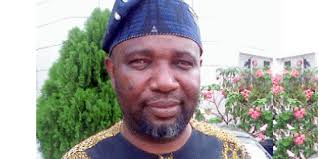The National Association of Government Approved Freight Forwarders (NAGAFF) has called on the Nigeria Customs Service to facilitate an all inclusive workshop where the real concept of the Economic Community of West Africa (ECOWAS)’ Common External Tariffs would be put on the table for an overall understanding of the stakeholders in the maritime industry.
Speaking with newsmen in Lagos on Thursday, the National President of NAGAFF, Dr. Eugene Nweke noted the policy makers as well as the stakeholders should concern themselves at the moment on the impact and the implications of the tariffs on the nation’s economy and on the Nigerian traders so as not to kick-start a process that would open up the nation’s economy for the smaller African countries to dominate.
Nweke while pointing out that adequate sensitization needed to be carried on the benefits or otherwise of CET so as to enable stakeholders render their advice on better ways of making the tariffs work to the nation’s advantage however frowned at the idea of isolating some people from the teeming stakeholders in the industry in the name of training them.
According to him,” So, if somebody goes to import certain goods, leaves Nigeria here, go to collaborate with somebody in Ghana and you go and import goods from abroad and you now, disassemble them and re-package them and now say it is made in Ghana and bring it to Nigeria. Is it the real concept?”
“Critical individuals or rather groups should be put together, let us look at the implications of this. The marketers, the traders and importers should be involved; shippers council should be there, all of us would sit down and look at it so that if we have any reservation, we put down the reservation (s)”.
“It is a regional agreement, agreed, but before accenting ti it, have we sat down to really weigh the implications? If they had done that before now and they say it is very good, then we will want to look at it from the practical point of view so that at the end of the day, nobody will be feeling, look I don’t understand this concept”.
He continued, “I have participated in the training at Ikeja, I know where the whole thing is driving at but how prepared is our people? What is the level of sensitization? What is the level of carrying them along? What is the cost implication of this? What is the level of benefit inherent? So, these are some of the things we should be looking at and take them as case studies rather than talking of POF”.
Recall that the Federal Government of Nigeria on the 11th of April, 2015 announced the implementation of the CET document in the country with a little modification to suit the Nigerian trading environment as provided for by the CET.

